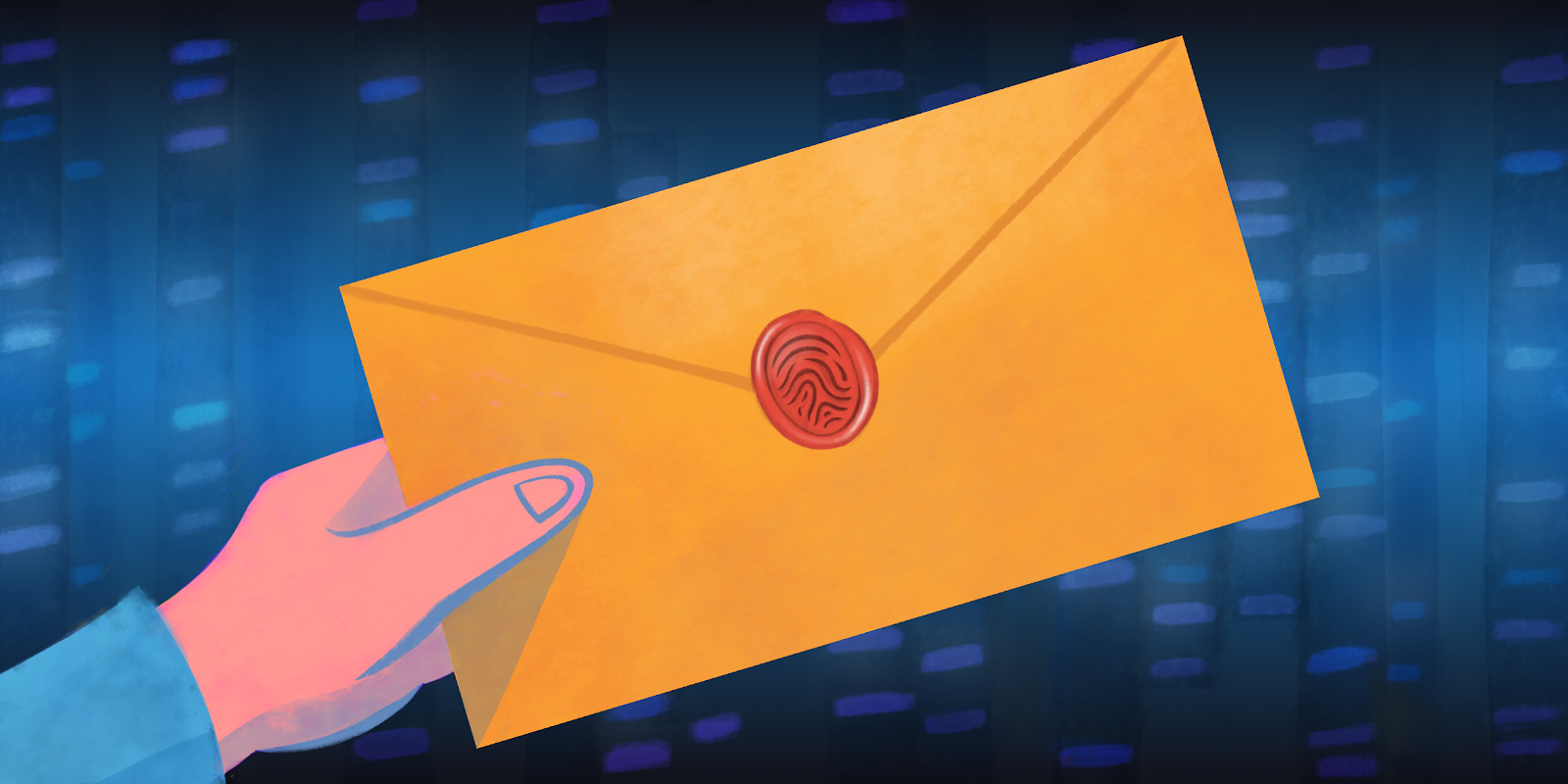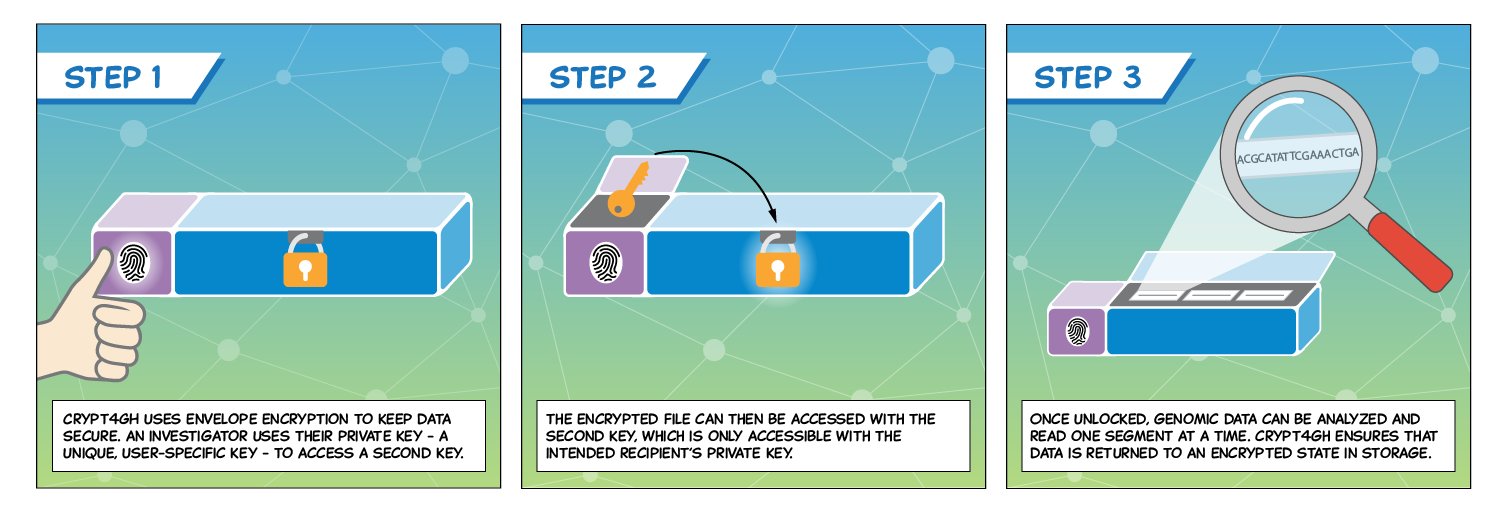About us
Learn how GA4GH helps expand responsible genomic data use to benefit human health.
Learn how GA4GH helps expand responsible genomic data use to benefit human health.
Our Strategic Road Map defines strategies, standards, and policy frameworks to support responsible global use of genomic and related health data.
Discover how a meeting of 50 leaders in genomics and medicine led to an alliance uniting more than 5,000 individuals and organisations to benefit human health.
GA4GH Inc. is a not-for-profit organisation that supports the global GA4GH community.
The GA4GH Council, consisting of the Executive Committee, Strategic Leadership Committee, and Product Steering Committee, guides our collaborative, globe-spanning alliance.
The Funders Forum brings together organisations that offer both financial support and strategic guidance.
The EDI Advisory Group responds to issues raised in the GA4GH community, finding equitable, inclusive ways to build products that benefit diverse groups.
Distributed across a number of Host Institutions, our staff team supports the mission and operations of GA4GH.
Curious who we are? Meet the people and organisations across six continents who make up GA4GH.
More than 500 organisations connected to genomics — in healthcare, research, patient advocacy, industry, and beyond — have signed onto the mission and vision of GA4GH as Organisational Members.
These core Organisational Members are genomic data initiatives that have committed resources to guide GA4GH work and pilot our products.
This subset of Organisational Members whose networks or infrastructure align with GA4GH priorities has made a long-term commitment to engaging with our community.
Local and national organisations assign experts to spend at least 30% of their time building GA4GH products.
Anyone working in genomics and related fields is invited to participate in our inclusive community by creating and using new products.
Wondering what GA4GH does? Learn how we find and overcome challenges to expanding responsible genomic data use for the benefit of human health.
Study Groups define needs. Participants survey the landscape of the genomics and health community and determine whether GA4GH can help.
Work Streams create products. Community members join together to develop technical standards, policy frameworks, and policy tools that overcome hurdles to international genomic data use.
GIF solves problems. Organisations in the forum pilot GA4GH products in real-world situations. Along the way, they troubleshoot products, suggest updates, and flag additional needs.
GIF Projects are community-led initiatives that put GA4GH products into practice in real-world scenarios.
The GIF AMA programme produces events and resources to address implementation questions and challenges.
NIF finds challenges and opportunities in genomics at a global scale. National programmes meet to share best practices, avoid incompatabilities, and help translate genomics into benefits for human health.
Communities of Interest find challenges and opportunities in areas such as rare disease, cancer, and infectious disease. Participants pinpoint real-world problems that would benefit from broad data use.
The Technical Alignment Subcommittee (TASC) supports harmonisation, interoperability, and technical alignment across GA4GH products.
Find out what’s happening with up to the minute meeting schedules for the GA4GH community.
See all our products — always free and open-source. Do you work on cloud genomics, data discovery, user access, data security or regulatory policy and ethics? Need to represent genomic, phenotypic, or clinical data? We’ve got a solution for you.
All GA4GH standards, frameworks, and tools follow the Product Development and Approval Process before being officially adopted.
Learn how other organisations have implemented GA4GH products to solve real-world problems.
Help us transform the future of genomic data use! See how GA4GH can benefit you — whether you’re using our products, writing our standards, subscribing to a newsletter, or more.
Join our community! Explore opportunities to participate in or lead GA4GH activities.
Help create new global standards and frameworks for responsible genomic data use.
Align your organisation with the GA4GH mission and vision.
Want to advance both your career and responsible genomic data sharing at the same time? See our open leadership opportunities.
Join our international team and help us advance genomic data use for the benefit of human health.
Discover current opportunities to engage with GA4GH. Share feedback on our products, apply for volunteer leadership roles, and contribute your expertise to shape the future of genomic data sharing.
Solve real problems by aligning your organisation with the world’s genomics standards. We offer software dvelopers both customisable and out-of-the-box solutions to help you get started.
Learn more about upcoming GA4GH events. See reports and recordings from our past events.
Speak directly to the global genomics and health community while supporting GA4GH strategy.
Be the first to hear about the latest GA4GH products, upcoming meetings, new initiatives, and more.
Questions? We would love to hear from you.
Read news, stories, and insights from the forefront of genomic and clinical data use.
Attend an upcoming GA4GH event, or view meeting reports from past events.
See new projects, updates, and calls for support from the Work Streams.
Read academic papers coauthored by GA4GH contributors.
Listen to our podcast OmicsXchange, featuring discussions from leaders in the world of genomics, health, and data sharing.
Check out our videos, then subscribe to our YouTube channel for more content.
View the latest GA4GH updates, Genomics and Health News, Implementation Notes, GDPR Briefs, and more.
Discover all things GA4GH: explore our news, events, videos, podcasts, announcements, publications, and newsletters.
22 Oct 2019
Crypt4GH, a new standard file container format from the Global Alliance for Genomics and Health (GA4GH), allows genomic data to remain secure throughout their lifetime, from initial sequencing to sharing with professionals at external organizations.

Image Credit: Stephanie Li, GA4GH
Widespread genomic data sharing between researchers and clinicians is crucial to maximizing the utility of datasets and delivering better patient outcomes. However, sharing information across networks and nations increases the risk of a data breach. Since genomic data are inherently sensitive due to their ability to reveal identifiable patient or participant information, the community needs strong approaches to security.
Crypt4GH, a new standard file container format from the Global Alliance for Genomics and Health (GA4GH), allows genomic data to remain secure throughout their lifetime, from initial sequencing to sharing with professionals at external organizations.
“Strong encryption both in transit and at rest are critical requirements for Genomics England and other genomics in healthcare initiatives,” said Augusto Rendon, who is leading implementation of Crypt4GH at Genomics England, where he is Director of Bioinformatics.
Currently, researchers securely share genomic and other sensitive data files using industry standard encryption, which keeps sensitive information secure during transfer but does not guarantee proper safeguarding thereafter. To support easy access, a user is likely to store the file on their local hard drive in the decrypted state, rather than repeatedly re-encrypting the sensitive information. However, this could leave the data vulnerable.
“If the receiver’s hard drive were to be hacked or their computer stolen,” explains Alexander Senf, Crypt4GH Product Lead and Scientific Programmer at EMBL’s European Bioinformatics Institute (EMBL-EBI), “the sensitive patient information could fall into the wrong hands.”
Crypt4GH overcomes this challenge by ensuring sensitive genomic data files remain encrypted throughout their lifetime. The approach uses envelope encryption, a protocol that is relatively new to research and healthcare but is increasingly common in the data security field because it enhances the security of data transfer and storage.
In this process, the encryption is two-fold: the data itself is encrypted, and so is the mechanism for unlocking it. The recipient must have two components. First, she needs her own private key to verify her identity and, second, she needs a key specific to the file being transferred to access the data therein.

“Being able to access genomic data without having to transfer and decrypt large files will allow us to speed up the reporting process further,” said GA4GH Large-Scale Genomics Work Stream Lead Oliver Hofmann, who is guiding implementation of Crypt4GH at the Australian Genomics Health Alliance (AGHA) where he co-leads the national data federation and analysis program.
Importantly, Crypt4GH only allows the contents of a data file to be read while it remains encrypted—the file is always “locked” when it is returned to storage. Existing applications for reading and analyzing data, such as SAMTools, readily support Crypt4GH, thereby allowing users to interact with the data while still in an encrypted state.
“We would like to see tools for analyzing data in the Crypt4GH format be developed for other utilities, like GATK, in the near future,” said Senf, noting that developing tools to support Crypt4GH on other platforms will encourage widespread adoption of the standard.
Ultimately, the Crypt4GH standard aims to allow researchers and clinicians to easily communicate private genomic data and information with reassurance that participant and patient data remain secure from transfer, to analysis, to storage.